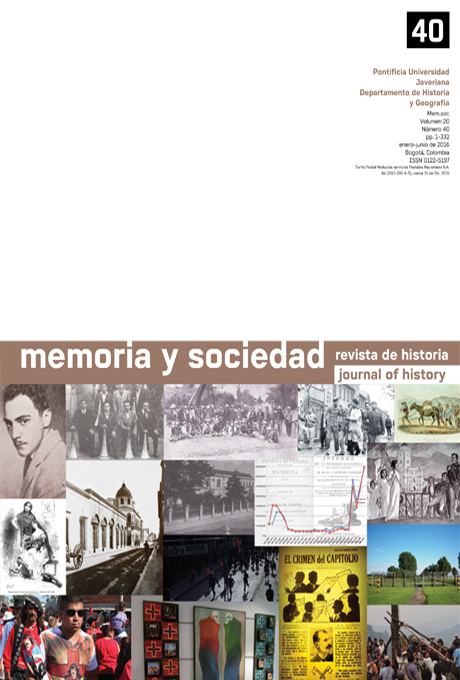Abstract
The atrocious experience of living and survi- ving in a German concentration camp during World War ii derived in a key issue as the re- presentation of said experiences – which had to keep a non-literary perspective, away from mere testimony – started to appear, at least in- voluntarily at first, from an aesthetic way of the historical fact. Then, the problems around the limits of representation appear at the border between the historical and the literary when narrating. Thus, when we present the case of the experience in the camps through the na- rrative of Jorge semprún and Primo Levi, we aim to establish that the aporia of relativism between history and literature finds a way to exist and stay in a continuous time – and thus, transmissible – in their intersection.
The journal Memoria y Sociedad is registered under a Creative Commons Attribution 4.0 International Public License. Thus, this work may be reproduced, distributed, and publicly shared in digital format, as long as the names of the authors and Pontificia Universidad Javeriana are acknowledged. Others are allowed to quote, adapt, transform, auto-archive, republish, and create based on this material, for any purpose (even commercial ones), provided the authorship is duly acknowledged, a link to the original work is provided, and it is specified if changes have been made. Pontificia Universidad Javeriana does not hold the rights of published works and the authors are solely responsible for the contents of their works; they keep the moral, intellectual, privacy, and publicity rights.
Approving the intervention of the work (review, copy-editing, translation, layout) and the following outreach, are granted through an use license and not through an assignment of rights. This means the journal and Pontificia Universidad Javeriana cannot be held responsible for any ethical malpractice by the authors. As a consequence of the protection granted by the use license, the journal is not required to publish recantations or modify information already published, unless the errata stems from the editorial management process. Publishing contents in this journal does not generate royalties for contributors.

